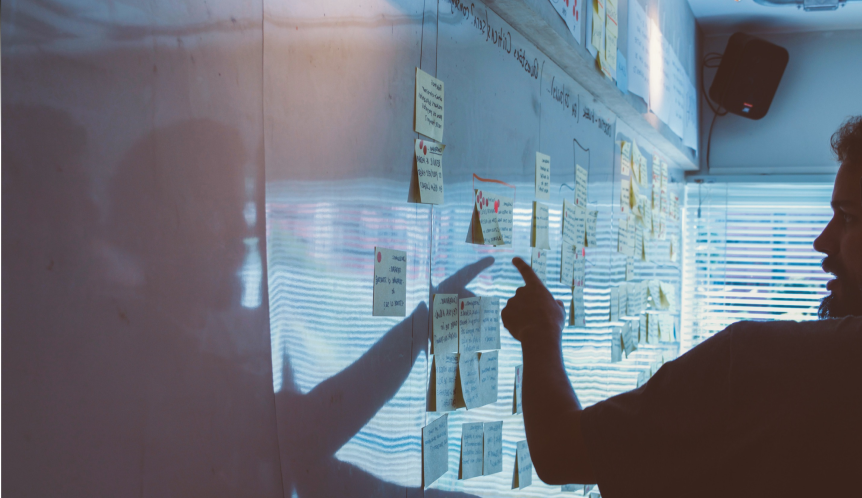Rent-a-Finn: How to be happy
The Finns would like to share their happiness with others. The “Rent-a-Finn” campaign allows people to hire one of eight volunteers to help them find the Finnish way to happiness.
When it comes to happiness, we probably think we have some sort of grasp of what makes us happy.
But how much can we control and how much is connected to the brain? And is there a recipe of core ingredients we should all be trying to put together to make ourselves happier?
“When we look at things scientifically, people talk about happy chemicals in the brain – they’ve got serotonin, dopamine and oxytocin,” says Rachael Sumner, research fellow at the University of Auckland’s School of Pharmacy.
“When it comes to maintaining all levels of health, it’s about not only making sure you’re getting plenty of rewarding things to increase dopamine, or doing plenty of enjoyable things to boost serotonin, or about making meaningful connections to increase oxytocin,” she says.
Students at over 1,000 schools in India’s capital Delhi are attending a happiness class at school. This involves group activities, story sessions and meditation exercises. Can these classes help address the issue of depression and stress among ado…
“Those things are really important, but you need to build the scaffolding for the brain for those things to work – so you need to eat right and exercise too,” she says. “There is a new area coming out with gut health. A healthy gut means a healthy mind and a healthy mind means happiness.”
READ MORE:
* The midlife low: how happiness varies with age
* How my family and I discovered a happier life
* Will ditching your office job make you happy?
* The happiness curve: Why life starts looking up again at 50
* The key to happiness in 2019
GRATITUDE

So are there ways to activate these chemicals in the body and make ourselves feel happier? Dr Emma Woodward, clinical director of the New Zealand Institute of Wellbeing and Resilience says practicing gratitude is a big one.
“There is a huge amount of scientific research behind the positive impact of practicing gratitude. Not only does it enhance the neurotransmitters serotonin and dopamines. When we focus on – and accept – the good, then we change our cognitive processes too. The more we focus on the good, the more likely we are to see the good which enhances our level of subjective wellbeing.”
Woodward believes a gratitude journal is one way to do this and needs to be put into your daily routine – whether it’s the first thing you do in the morning, or the last thing you do before bed. Having a trigger to remind yourself to practice gratitude is also something she recommends.
“At the moment, for me, because of the weather, it’s rainbows. Every time I see one right now, it triggers me to practice gratitude, because they’re beautiful things and catch my attention.”
MINDFULNESS

Practicing mindfulness is another tool Woodward recommends. She acknowledges the practice has been a bit of a buzzword in the media lately, but believes it’s for good reason as it can “help us regulate and understand our emotional responses to things”.
“It’s about taking a moment to connect with – and focus our attention on – the here and now. On what is actually happening, not just the noise in our head. When we’re more aware of our internal processes and stay present and connected, rather than being ruled by our default mode network, we’re more likely to be able to choose our response based on what is actually occurring, rather than reacting mindlessly.”
Practicing mindfulness is actually quite easy to do, believes Woodward. One of the most effective ways is also one of the simplest – just breathe.
“Managing your breath is a really good way of counteracting stress and anxiety. It can trigger our parasympathetic nervous system, which counteracts our sympathetic nervous system [which is the part of our nervous system involved with the stress response) and reduce levels of cortisol and adrenaline – the stress chemicals.”
Focusing your attention on something like your breathing also allows you to cut out the rest of the noise and pay attention to one particular thing. In turn, Woodward says “you start to know yourself and your internal processes better. You learn what your triggers are, and to be more in control of yourself”.
CONNECT AND LAUGH

Connecting with others (particularly people who make you feel good and laugh) is another key to happiness,” says Woodward.
“We don’t live the way we did when we first evolved. We used to live in smaller and more cooperative communities and tribes, but now we live in more isolated family units. This can make you feel lonely and loneliness is corrosive because we’re social beings, wired to connect. So forging positive connections with other people and doing things like random acts of kindness make yourself feel connected to other people.”
GET OUTDOORS

Many of us already know that “feel good” endorphins are released when we exercise, which can often leave you feeling more energised and in a good mood. But being outside, whether you’re exercising or not, can also work to boost your mood.
“It might be walking through a forest, it might simply be getting out in the fresh air and getting out of your house and reminding yourself there is a whole world outside your little bubble,” says Woodward. “Walking through nature and exploring your environment definitely has a positive impact on your mental health and wellbeing.”
Overall, Woodward says it’s about incorporating these small behavioral changes meaningfully into your everyday life. “They’re not just fads. They’re not just phases,” she stresses. “They need to done little and often,” she says.
When it comes to happiness and wellbeing, she believes it’s something that should be taught from a young age so everyone has the tools to help themselves.
“We’re always looking for the quick fix because we’re busy and stressed and that’s why we don’t want to put a hard yards in,” she says. “If we learn these skills from a very early young age in primary schools and secondary schools, then we would know that we have the skills within ourselves to support. I think we’d see a decrease in mental illness.
“Our focus on the last few generations has been on achievement and outcome, rather than wellbeing and self-fulfilment. We’re taught to be the best, to get the highest score, to work the longest hours, but we’re not taught about what we need to do to support that process.
“When we burn out, we don’t have the energy to learn new skills and put the hard yards in that we need to get ourselves well again and that’s partly why we’re were seeing a rise in mental health issues.”

Ultimately, Woodward says she believes being happy makes people make good choices, not just for themselves but for the planet too.
“If you’re happy and have a higher level of subjective wellbeing, then you tend to be kinder, to be nicer, more compassionate – you’re more able to extend that happiness onto your fellow humans. Happy people tend to make positive choices about themselves and for others too.”
“Society is changing at a pace much faster than we are able to develop the skills to navigate it and change is inherently unsettling. As human beings, we don’t know what’s going to come next. Add to that the fact that we are facing more and more concerning global socio-political issues – and issues such as climate change – and I think more than ever before we need to take charge of our own happiness and wellbeing because we’ve got to accept what we’ve got right now.
“We also need to be able to develop the right mindset to be proactive and be able to effect positive change in the face of situations that can feel overwhelming. We can’t provide certainty, but we can develop the skills needed in order to be resilient in the face of such concerns.”
HAPPINESS KEYS
* Write in a gratitude journal: whether it’s first thing in the morning or last thing at night try and find time during the day to write down what you’re grateful for.
* Practice mindfulness: the easiest way to do this is through breathing techniques which is a good way to fight stress and anxiety.
* Get out in nature: Even stepping outside the bubble of your home can help.
* Exercise: It’s a well-known fact exercise works to release endorphins which make you feel good.
* Connect with others: But make sure you’re connecting with people that make you feel good.
* Laugh: This also releases the “feel good” endorphins.





